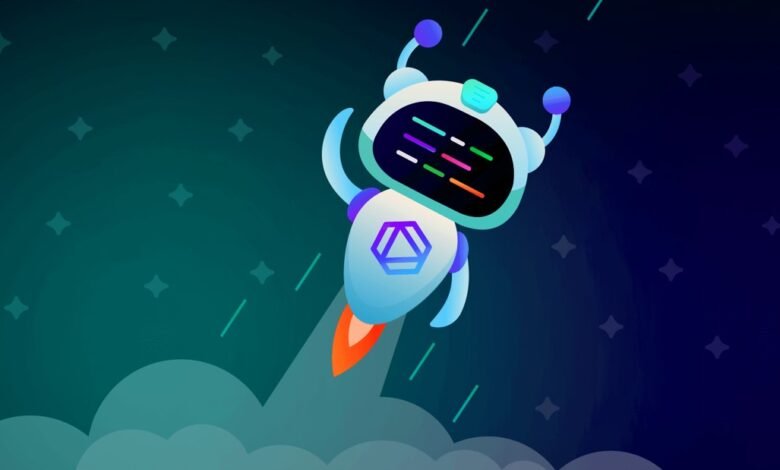The Future of AI Coding Assistants In 2024

Artificial intelligence has undeniably transformed various industries, and software development is no exception. In recent years, the advent of AI coding assistants has revolutionized the way developers write, review, and collaborate on code. These tools leverage advanced technologies such as natural language processing (NLP) and machine learning algorithms to provide intelligent coding suggestions and enhance the overall development process.
EXPLORE THE CONTENTS
Current Landscape of AI Coding Assistants
In today’s tech landscape, several AI coding assistants have gained prominence. Tools like OpenAI’s Codex, GitHub Copilot, and TabNine have become integral parts of developers’ toolkits. These tools offer features such as autocompletion, code generation, and even context-aware suggestions, significantly boosting developers’ productivity.
Advancements in Natural Language Processing (NLP)
The heart of many AI coding assistants lies in their ability to understand and interpret human language. Advancements in natural language processing have empowered these tools to comprehend complex coding queries, allowing developers to interact with them more naturally and intuitively. This shift has minimized the learning curve traditionally associated with coding tools.
Machine Learning Algorithms in AI Coding
Machine learning plays a crucial role in the continuous evolution of AI coding assistants. These tools employ algorithms that learn from vast datasets of code, adapting to developers’ coding styles and preferences over time. The result is a personalized coding experience that aligns with the unique needs and patterns of each developer.
Collaborative Coding with AI Assistants
One of the significant advantages of artificial intelligence coding assistants is their ability to facilitate collaborative coding efforts. Developers can now work seamlessly on projects, with AI tools suggesting code snippets that align with the project’s goals and coding standards. This collaborative aspect fosters teamwork and accelerates the development lifecycle.
Challenges Faced by AI Coding Assistants
However, the journey of artificial intelligence coding assistants is not without challenges. Issues such as biased code suggestions, misinterpretation of context, and occasional inaccuracies have been reported. Striking a balance between providing helpful suggestions and respecting developers’ autonomy remains an ongoing challenge.
The Future Integration of AI with Coding Environments
Looking ahead, the integration of AI with coding environments is expected to deepen. Future AI coding assistants are likely to become seamlessly embedded within integrated development environments (IDEs) and coding platforms, offering a unified and streamlined experience for developers.
Read More: The New Google Gemini AI Is Prepared to Face GPT-4
Enhanced Code Quality and Productivity
As AI coding assistants continue to evolve, the focus on improving code quality and boosting productivity will remain paramount. These tools are expected to provide increasingly sophisticated suggestions, catch potential bugs, and contribute to the overall robustness of the codebase.
Ethical Considerations in AI Coding
The rise of AI coding assistants also raises ethical considerations. Developers and the broader tech community must address concerns related to biases in code suggestions, transparency in AI decision-making, and the responsible use of these tools to ensure a positive impact on the industry.
User Feedback and Satisfaction
User feedback plays a pivotal role in refining AI coding tools. Developers’ experiences and insights contribute to the continuous improvement of these assistants, helping developers tailor the tools to their specific needs. This iterative process enhances user satisfaction and ensures the tools remain relevant.
Educational Impact of AI Coding Assistants
In educational settings, AI coding assistants are becoming valuable resources for teaching and learning programming. These tools provide real-time feedback, assist learners in understanding coding concepts, and offer hands-on experience, ultimately preparing the next generation of developers for the challenges of the tech industry.
AI Coding in Various Programming Languages
AI coding assistants are versatile, supporting a wide array of programming languages. Whether it’s Python, JavaScript, Java, or other languages, these tools can adapt and assist developers in navigating language-specific challenges, promoting efficiency and accuracy.
Security Concerns and Solutions
Addressing security concerns is crucial to the integration of AI into coding. Ensuring secure coding practices and implementing measures to prevent vulnerabilities in artificial intelligence coding assistants are essential steps in safeguarding the integrity of software development processes.
Comparative Analysis of AI Coding Tools
Choosing the right AI coding assistant depends on various factors, including project requirements, team preferences, and the coding languages used. A comparative analysis of leading tools can help developers make informed decisions, selecting the tool that aligns best with their specific needs.
Conclusion
In conclusion, the future of AI coding assistants holds tremendous promise for the software development industry. With continuous advancements in NLP, machine learning, and collaborative coding, these tools are set to become indispensable assets for developers worldwide. Embracing the transformative potential of artificial intelligence coding assistants will undoubtedly lead to more efficient, collaborative, and innovative coding practices.
FAQs
- Are AI coding assistants suitable for beginners in programming?
- Yes, many AI coding assistants offer features that make them accessible and beneficial for beginners learning programming.
- How do AI coding assistants handle multiple programming languages?
- AI coding assistants are designed to adapt to various programming languages, providing assistance and suggestions across a wide spectrum.
- What ethical considerations should developers keep in mind when using AI coding assistants?
- Developers should be mindful of potential biases and transparency in AI decision-making and ensure responsible use of AI coding tools.
- Do AI coding assistants work well in collaborative coding environments?
- Yes, AI coding assistants facilitate collaborative coding efforts by offering context-aware suggestions that align with the project’s goals.
- How can developers provide feedback to improve AI coding tools?
- Most AI coding tools have feedback mechanisms where developers can share their experiences, helping in the continuous improvement of the tools.








2 Comments